←Return to Event Details
International Translation Day
ITD 2025 Speaker Bios and Presentation Descriptions
Organization of Speakers and Presentations
1. Welcome Address2. Ethical Issues in Translating Indigenous Languages
3.Translation and Interpretation: Ensuring Cultural and Linguistic Access (Part 1) Indigenous languages and cultural access
4. Translation and Interpretation: Ensuring Cultural and Linguistic Access (Part 2) Training, regulation, and education for linguistic access
5. Keynote: Meta/UNESCO partnership announcement for project “No Language Left Behind”
6. Closing Address
Welcoming Address
Ms. Jeannette Stewart, Founder Translation Commons, (USA)
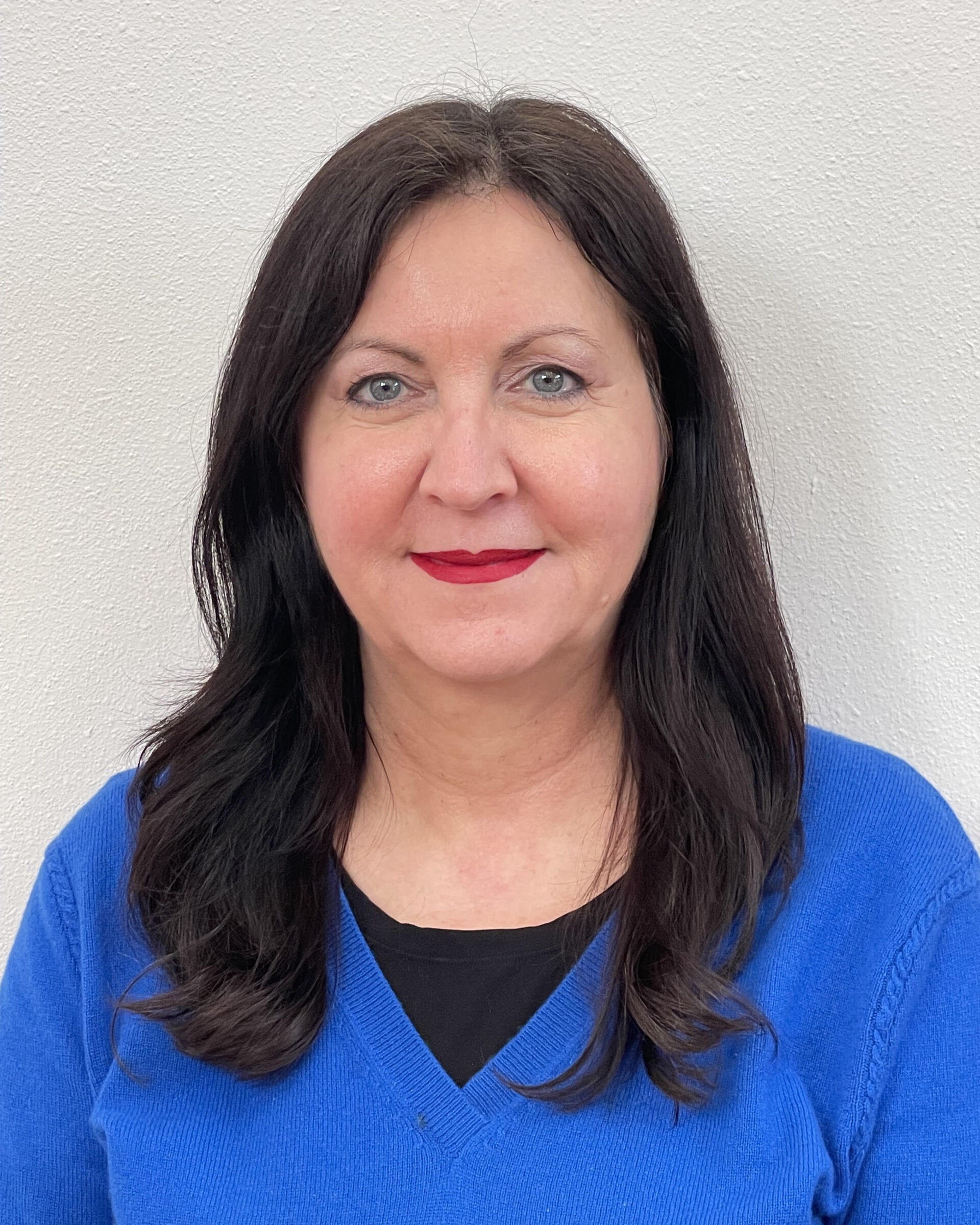 Ms. Jeannette Stewart is a strategic globalization leader and has worked with mainstream brands helping them achieve global growth, business revitalization, and transformation, having extensively worked on both the client and vendor side. She founded Translation Commons, a nonprofit community of language professionals working on Digital Inclusion and partnering with UNESCO’s International Decade of Indigenous Languages to champion the preservation and use of indigenous languages globally by creating Keyboards, events, and resources for communities whose scripts are not digitized. Jeannette has been invited and appointed to a UNESCO (12 member) Expert Committee to oversee the creation and update of the World Atlas of Languages, an online UNESCO platform that reflects the dynamism and depths of the global linguistic diversity. It provides accurate, reliable, up-to-date and robust data on the world’s languages. She is the former CEO of CommuniCare, a life-science translation company with offices in London, Paris, Athens, Budapest and Los Angeles. Jeannette has been involved in high-profile projects such as the Genome Project and prototyping the online Unified Submission Process for the European Medicine Agency. Jeannette has founded, served on the board of directors, moderated and volunteered in various educational and health charities.
Ms. Jeannette Stewart is a strategic globalization leader and has worked with mainstream brands helping them achieve global growth, business revitalization, and transformation, having extensively worked on both the client and vendor side. She founded Translation Commons, a nonprofit community of language professionals working on Digital Inclusion and partnering with UNESCO’s International Decade of Indigenous Languages to champion the preservation and use of indigenous languages globally by creating Keyboards, events, and resources for communities whose scripts are not digitized. Jeannette has been invited and appointed to a UNESCO (12 member) Expert Committee to oversee the creation and update of the World Atlas of Languages, an online UNESCO platform that reflects the dynamism and depths of the global linguistic diversity. It provides accurate, reliable, up-to-date and robust data on the world’s languages. She is the former CEO of CommuniCare, a life-science translation company with offices in London, Paris, Athens, Budapest and Los Angeles. Jeannette has been involved in high-profile projects such as the Genome Project and prototyping the online Unified Submission Process for the European Medicine Agency. Jeannette has founded, served on the board of directors, moderated and volunteered in various educational and health charities.
Mr. Guillerme Canela de Souza Godoi, Director for Division for Digital Inclusion and Policies and Digital Transformation, Communication and Information Division, UNESCO, (France)
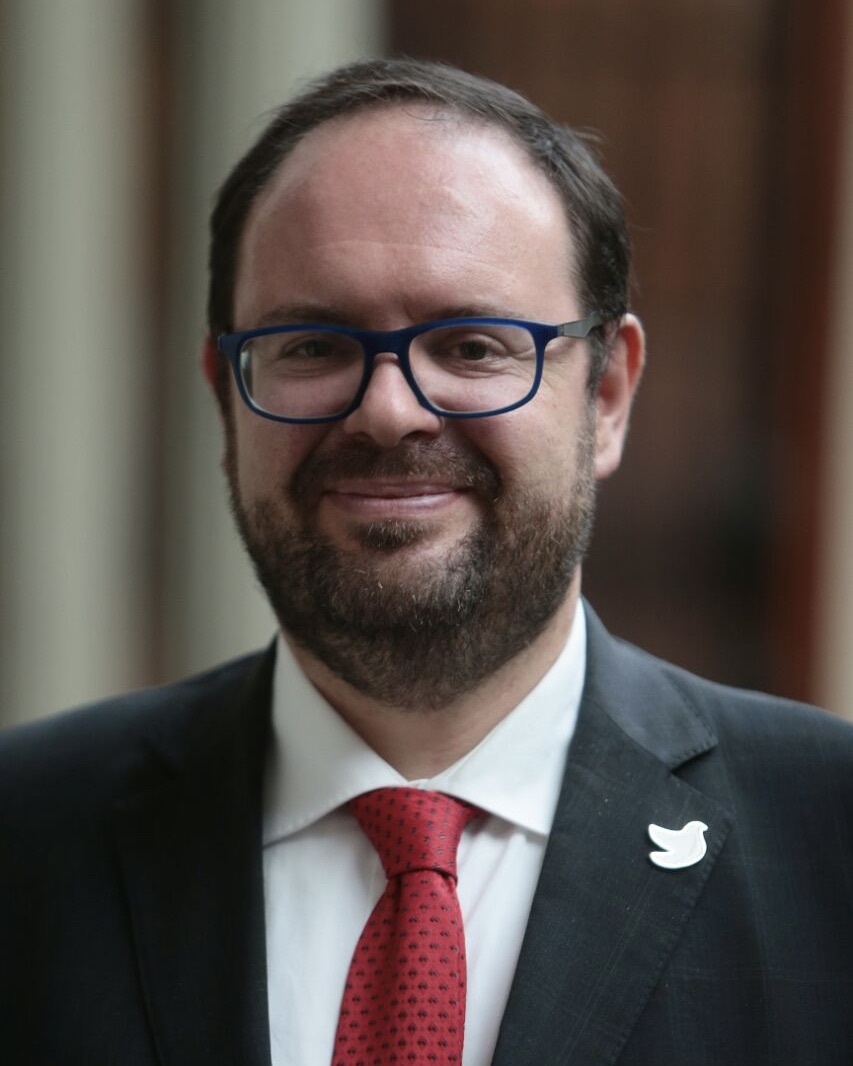 Since January 2025, Guilherme Canela is the Director of the Division for Digital Inclusion and Policies and Digital Transformation, and Secretary of the Information for All Programme (IFAP) at UNESCO headquarters, in Paris. As Chief of the Section for Freedom of Expression and Safety of Journalists for 5 years (2020-2025), he was notably responsible for World Press Freedom Day, the UNESCO/Guillermo Cano World Press Freedom Prize, and the Guidelines for the Governance of Digital Platforms. Between 2012 and 2020 (8 years), he held the position of Communication and Information Regional Adviser for Latin America and the Caribbean at UNESCO Montevideo Office. During those years, he performed as Regional Coordinator of the UNESCO Initiative for the Promotion of Democracy and Freedom of Expression in judicial systems in Latin America. He was also the Secretary of the Regional Committee of the UNESCO Memory of the World Programme for Latin America and the Caribbean, and focal point of the Organization for issues related to the safety of journalists. He has a B.A. in International Relations from the University of Brasília (UNB) and a Master’s Degree on Political Science from the University of São Paulo (USP). For 8 years (2000-2008), Guilherme coordinated the media and journalism research area of the News Agency for Children’s Rights (ANDI). In this period, he was responsible for several surveys that evaluated the news media coverage on issues such as children’s education, rights, violence, health, sexual abuse, human and social development, drugs, participatory democracy, entrepreneurial social responsibility, human rights, among others. He is co-author of 10 books published by ANDI on these issues (Series Media and Social Mobilization, Cortez Publisher) and several brochures, magazines and discussion texts on various topics related to the universe of human rights, of the rights of children, and the development and of democracies. Jointly with Solano Nascimento he published the book Access to information and public policies social control. He actively participated in the process of discussion and implementation of Access laws in several countries. He was/is a member of several advisory boards and juries related to journalism, freedom of expression and access to information.
Since January 2025, Guilherme Canela is the Director of the Division for Digital Inclusion and Policies and Digital Transformation, and Secretary of the Information for All Programme (IFAP) at UNESCO headquarters, in Paris. As Chief of the Section for Freedom of Expression and Safety of Journalists for 5 years (2020-2025), he was notably responsible for World Press Freedom Day, the UNESCO/Guillermo Cano World Press Freedom Prize, and the Guidelines for the Governance of Digital Platforms. Between 2012 and 2020 (8 years), he held the position of Communication and Information Regional Adviser for Latin America and the Caribbean at UNESCO Montevideo Office. During those years, he performed as Regional Coordinator of the UNESCO Initiative for the Promotion of Democracy and Freedom of Expression in judicial systems in Latin America. He was also the Secretary of the Regional Committee of the UNESCO Memory of the World Programme for Latin America and the Caribbean, and focal point of the Organization for issues related to the safety of journalists. He has a B.A. in International Relations from the University of Brasília (UNB) and a Master’s Degree on Political Science from the University of São Paulo (USP). For 8 years (2000-2008), Guilherme coordinated the media and journalism research area of the News Agency for Children’s Rights (ANDI). In this period, he was responsible for several surveys that evaluated the news media coverage on issues such as children’s education, rights, violence, health, sexual abuse, human and social development, drugs, participatory democracy, entrepreneurial social responsibility, human rights, among others. He is co-author of 10 books published by ANDI on these issues (Series Media and Social Mobilization, Cortez Publisher) and several brochures, magazines and discussion texts on various topics related to the universe of human rights, of the rights of children, and the development and of democracies. Jointly with Solano Nascimento he published the book Access to information and public policies social control. He actively participated in the process of discussion and implementation of Access laws in several countries. He was/is a member of several advisory boards and juries related to journalism, freedom of expression and access to information.
Dr. Alison Rodriguez, President, International Federation of Translators (Australia)
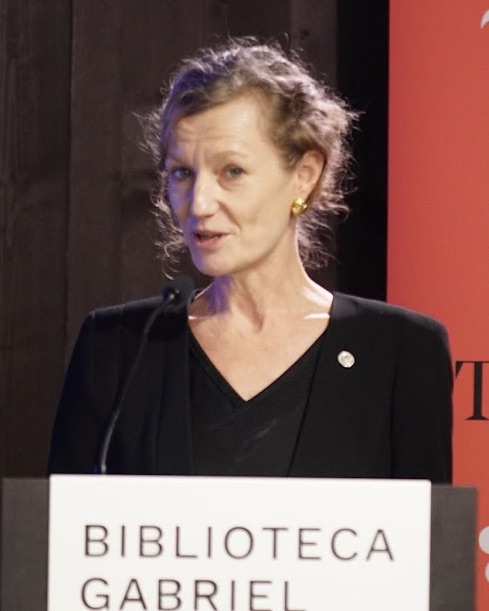 Dr. Alison is President of the Fédération Internationale des Traducteurs (FIT). A linguist and translator in legal/human rights and technical fields, she has diverse experience in strategy, policy and promotion of the arts. She is known for her strong advocacy of multilingualism, multilateralism, and cultural and linguistic diversity, particularly indigenous language revitalisation. She also has an interest in the ethics of AI, and in promoting International Translation Day, each 30 September, as the premier day to celebrate the work of translators, interpreters and terminologists around the world.
Dr. Alison is President of the Fédération Internationale des Traducteurs (FIT). A linguist and translator in legal/human rights and technical fields, she has diverse experience in strategy, policy and promotion of the arts. She is known for her strong advocacy of multilingualism, multilateralism, and cultural and linguistic diversity, particularly indigenous language revitalisation. She also has an interest in the ethics of AI, and in promoting International Translation Day, each 30 September, as the premier day to celebrate the work of translators, interpreters and terminologists around the world.
Dr. Jandhyala Prabhakar Rao, Professor of Linguistics, University of Hyderabad, India Member (India), UNESCO-IFAP Bureau Convener, Consortium on Global AI Ethics Network for Social Good (GAIEN4SG)
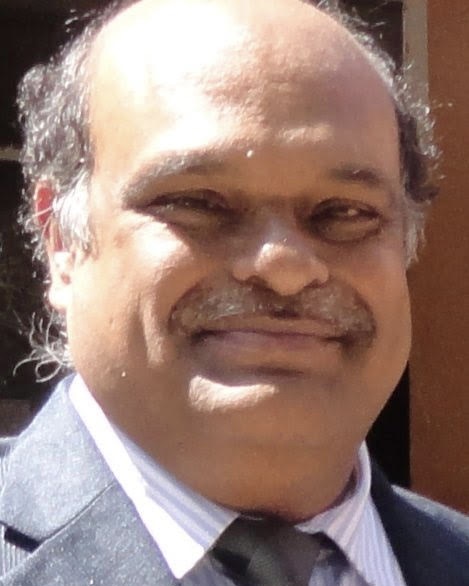 Dr. Rao was awarded Honorius Causa from Krasnoder State University, Russia and also Honorary Professor Medal from Kazan State University, Russia. His research areas of interest include Linguistics, Translation Studies, Foreign Language teaching, Digital Learning and Higher Education in India with special focus on Internationalization of Higher Education. He has more than 60 International and National Publications and edited ten books (eight International and two National). Dr. Rao is member of many International and National Committees and Editorial Boards of academic journals.
Dr. Rao was awarded Honorius Causa from Krasnoder State University, Russia and also Honorary Professor Medal from Kazan State University, Russia. His research areas of interest include Linguistics, Translation Studies, Foreign Language teaching, Digital Learning and Higher Education in India with special focus on Internationalization of Higher Education. He has more than 60 International and National Publications and edited ten books (eight International and two National). Dr. Rao is member of many International and National Committees and Editorial Boards of academic journals.
Dr. Alan Melby, Chair, International Federation of Translators Standards Committee (USA)
 Alan Melby started working on a machine translation project in 1970. By 1980, his focus had changed to developing tools for human translators. He is currently Chair of the FIT (www,fit-ift.org) Standards Committee and Technical Contact for the ASTM (www.astm.org) project to standardize new labels on translation with the translation standard (F2575).
Alan Melby started working on a machine translation project in 1970. By 1980, his focus had changed to developing tools for human translators. He is currently Chair of the FIT (www,fit-ift.org) Standards Committee and Technical Contact for the ASTM (www.astm.org) project to standardize new labels on translation with the translation standard (F2575).
Dr. William Tjhi, AI Singapore (Singapore)
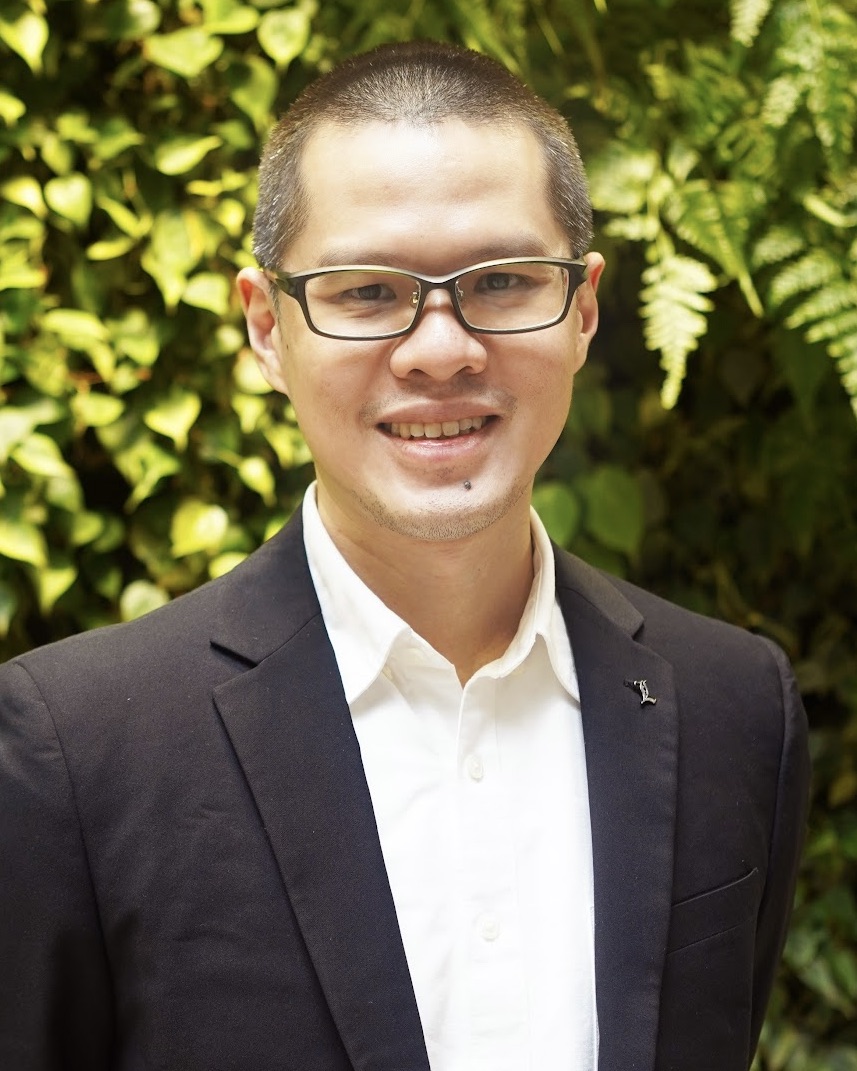 William Tjhi leads the Applied Research team at AI Singapore, driving the development of SEA-LION LLMs, a suite of open Large Language Models tailored for Southeast Asian languages and contexts. With over a decade of experience in machine learning and natural language processing, he has worked in various tech startups and public sector organizations in Singapore. William earned his PhD from Nanyang Technological University in 2008, focusing on unsupervised learning for text data. He actively contributes to regional tech communities such as Data Science Singapore, Data Science Indonesia, and Cambodia’s AI Forum, and serves as a technical advisor for Singapore’s National Translational Council and Indonesia AI Institute.
William Tjhi leads the Applied Research team at AI Singapore, driving the development of SEA-LION LLMs, a suite of open Large Language Models tailored for Southeast Asian languages and contexts. With over a decade of experience in machine learning and natural language processing, he has worked in various tech startups and public sector organizations in Singapore. William earned his PhD from Nanyang Technological University in 2008, focusing on unsupervised learning for text data. He actively contributes to regional tech communities such as Data Science Singapore, Data Science Indonesia, and Cambodia’s AI Forum, and serves as a technical advisor for Singapore’s National Translational Council and Indonesia AI Institute.
Dr. Valts Ernštreits, Senior Researched and Director, University of Latvia Livonian Institute (Latvia)
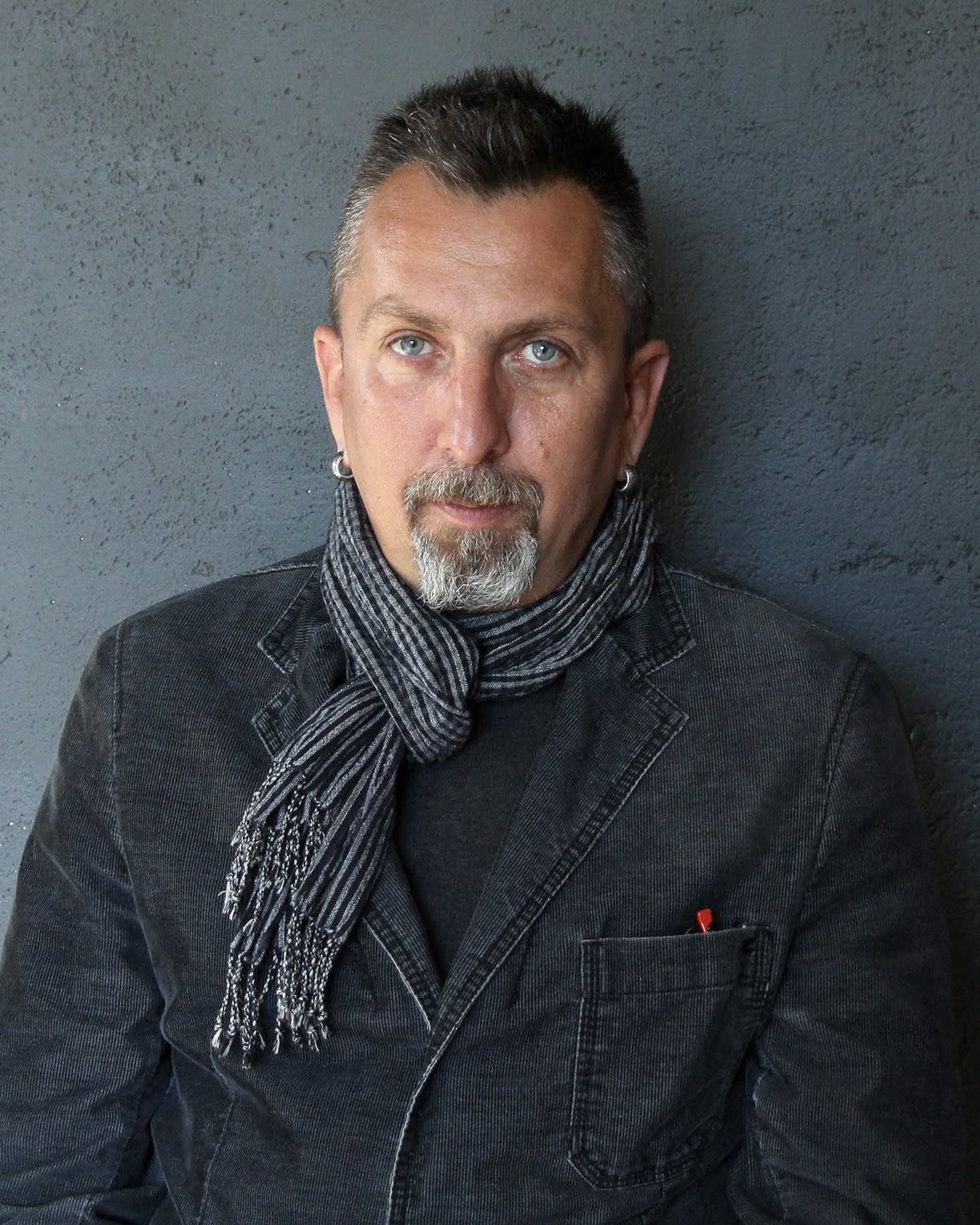 Valts Ernštreits is a Livonian-born language activist and director of the University of Latvia Livonian Institute, specializing in digital tools for critically endangered and under-resourced languages. Since 2021, he has served on the Global Task Force for making the Decade of Indigenous Languages (2022-2032), co-chairing its Ad-Hoc group on Digital Equality and domains, and has contributed to UNESCO’s Global Roadmap for Linguistic Diversity in the Digital World.
Valts Ernštreits is a Livonian-born language activist and director of the University of Latvia Livonian Institute, specializing in digital tools for critically endangered and under-resourced languages. Since 2021, he has served on the Global Task Force for making the Decade of Indigenous Languages (2022-2032), co-chairing its Ad-Hoc group on Digital Equality and domains, and has contributed to UNESCO’s Global Roadmap for Linguistic Diversity in the Digital World.
Dr. Rambhatla Siva Prasad, Former Honorary Professor, CDLTR, and Professor of Anthropology, University of Hyderabad (India)
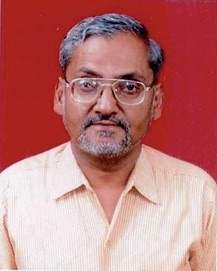 Dr. R. Siva Prasad is a retired professor of Anthropology and formerly Honorary Professor in the Center for Digital Learning, Training and Resources (CDLTR), University of Hyderabad. He has both teaching and research experience of more than 40 years, during which he guided research students in diverse areas. He is actively associated with UNESCO-IFAP programmes. He is a member of the Information Ethics Working Group (IEWG) of UNESCO-Information for All Programme (IFAP). His current areas of interest are AI ethics, different aspects of marginal and indigenous communities, including indigenous knowledge systems, languages, education, and conflict management.
Dr. R. Siva Prasad is a retired professor of Anthropology and formerly Honorary Professor in the Center for Digital Learning, Training and Resources (CDLTR), University of Hyderabad. He has both teaching and research experience of more than 40 years, during which he guided research students in diverse areas. He is actively associated with UNESCO-IFAP programmes. He is a member of the Information Ethics Working Group (IEWG) of UNESCO-Information for All Programme (IFAP). His current areas of interest are AI ethics, different aspects of marginal and indigenous communities, including indigenous knowledge systems, languages, education, and conflict management.
Dr. Thomas Mullaney, Project Coordinator, Silicon (USA)
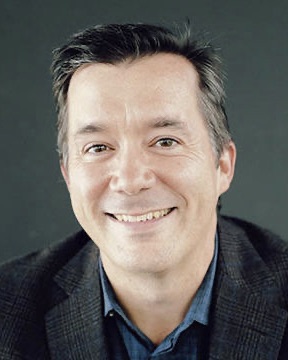 Thomas S. Mullaney is the SILICON lead Co-PI. He is a Professor of Chinese History at Stanford University, Kluge Chair in Technology and Society at the Library of Congress, and a Guggenheim Fellow. He is the author or lead editor of 8 books, including The Chinese Computer: A Global History of the Information Age (MIT Press, 2024 In-Press), Where Research Begins (University of Chicago Press, 2022, with Christopher Rea), The Chinese Typewriter: A History (MIT Press, 2017, winner of the Fairbank Prize), and Coming to Terms with the Nation: Ethnic Classification in Modern China (UC Press, 2010). He earned his BA and MA from the Johns Hopkins University, and his PhD from Columbia University. For the past 15 years, his research, publications, conference planning, and coursework have focused expressly on asymmetries in the global information and language technologies, with a keen focus on writing systems that have been systematically marginalized and excluded from the modern information age.
Thomas S. Mullaney is the SILICON lead Co-PI. He is a Professor of Chinese History at Stanford University, Kluge Chair in Technology and Society at the Library of Congress, and a Guggenheim Fellow. He is the author or lead editor of 8 books, including The Chinese Computer: A Global History of the Information Age (MIT Press, 2024 In-Press), Where Research Begins (University of Chicago Press, 2022, with Christopher Rea), The Chinese Typewriter: A History (MIT Press, 2017, winner of the Fairbank Prize), and Coming to Terms with the Nation: Ethnic Classification in Modern China (UC Press, 2010). He earned his BA and MA from the Johns Hopkins University, and his PhD from Columbia University. For the past 15 years, his research, publications, conference planning, and coursework have focused expressly on asymmetries in the global information and language technologies, with a keen focus on writing systems that have been systematically marginalized and excluded from the modern information age.
Ms. Belu Ticona, Computer Science PhD student, George Mason University (USA)
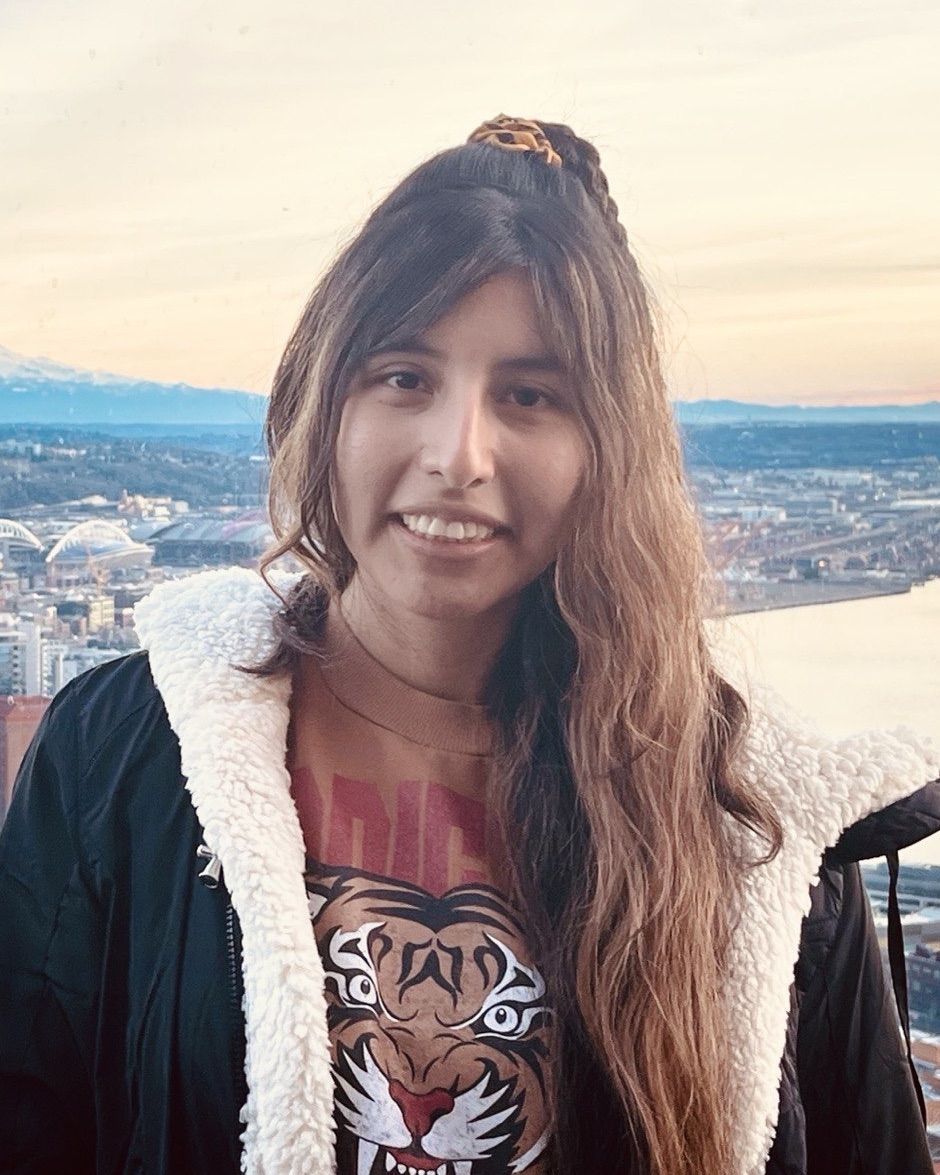 Belu Ticona is a Computer Science PhD student at George Mason University, working under the guidance of Antonios Anastasopoulos. Her research is on language technologies, focusing on crisis communication, low-resource settings, and minoritized languages and communities. Previously, she graduated from University of Buenos Aires and interned at Microsoft and First Languages AI Reality. She has Quechua-Aymara heritage.
Belu Ticona is a Computer Science PhD student at George Mason University, working under the guidance of Antonios Anastasopoulos. Her research is on language technologies, focusing on crisis communication, low-resource settings, and minoritized languages and communities. Previously, she graduated from University of Buenos Aires and interned at Microsoft and First Languages AI Reality. She has Quechua-Aymara heritage.
Mr. Ram Mohan, Founder, Coalition on Digital Impact (USA)
 Ram Mohan is the Founder and Chair of the Coalition on Digital Impact (CODI.) His career is marked by a deep commitment to the internet’s security, stability, and particularly, its universal accessibility. A key area of Ram Mohan’s enduring focus and expertise is Universal Acceptance (UA). He is widely credited with coining the term “Universal Acceptance” and has been a driving force behind its adoption. CODI is a global alliance specifically formed to bridge the linguistic gap on the internet, working to ensure that every person can navigate and engage with the internet in their native language.
Ram Mohan is the Founder and Chair of the Coalition on Digital Impact (CODI.) His career is marked by a deep commitment to the internet’s security, stability, and particularly, its universal accessibility. A key area of Ram Mohan’s enduring focus and expertise is Universal Acceptance (UA). He is widely credited with coining the term “Universal Acceptance” and has been a driving force behind its adoption. CODI is a global alliance specifically formed to bridge the linguistic gap on the internet, working to ensure that every person can navigate and engage with the internet in their native language.
Dr. Hanem El-Farahaty, Associate Professor of Arabic Language, University of Leeds (UK)
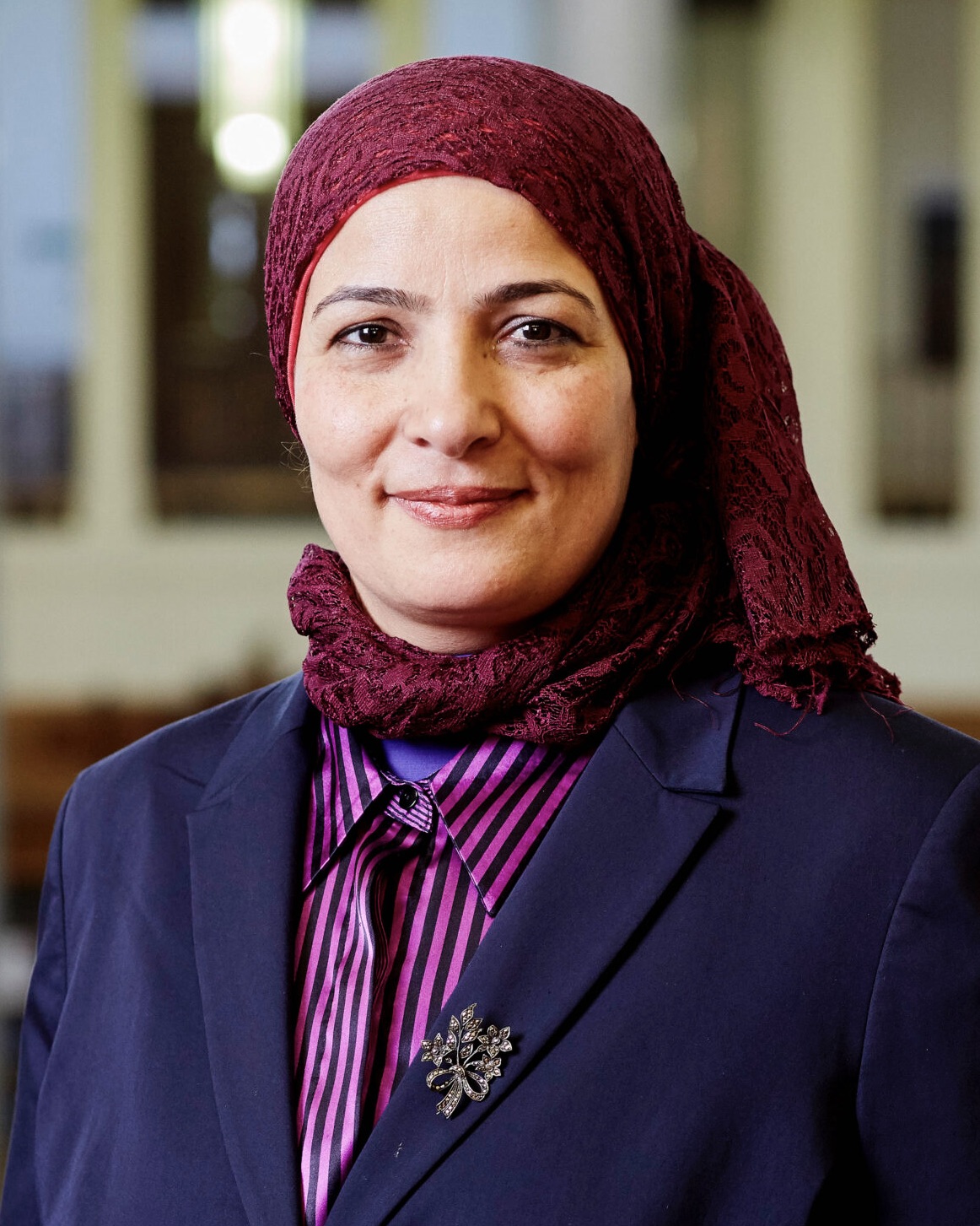 Dr. Hanem El-Farahaty is an Associate Professor of Arabic Language, Translation, and Interpreting at the University of Leeds, where she also serves as the Deputy Director of Postgraduate Research for the School of Languages, Cultures, and Societies. She is a Senior Fellow of the Higher Education Academy and a Fellow of the Chartered Institute of Linguists. Dr. El-Farahaty is a linguist, translator, and interpreter with expertise in Arabic-English legal translation and comparative corpus linguistics. Her research and teaching focus on legal translation, translation for international organizations, human rights, and inclusive legal language. Dr. El-Farahaty is the author of Arabic-English-Arabic Legal Translation (2015) and co-editor of the Routledge Handbook of Arabic Translation (2019). Her book on legal translation was translated into Arabic by King Abdulaziz University in Saudi Arabia (2018) and is widely used in universities across the Arab world. She also serves as a reviewer for several international publishers, including Routledge, Cambridge University Press, and Edinburgh University Press. Since 2017, Dr. El-Farahaty
has been instrumental in developing and maintaining the Leeds Legal Corpora of Arabic countries’ constitutions. These legal open-access corpora have become invaluable resources for legal translators, researchers, and students, providing a comprehensive database of authentic legal texts in both Arabic and English.
Dr. Hanem El-Farahaty is an Associate Professor of Arabic Language, Translation, and Interpreting at the University of Leeds, where she also serves as the Deputy Director of Postgraduate Research for the School of Languages, Cultures, and Societies. She is a Senior Fellow of the Higher Education Academy and a Fellow of the Chartered Institute of Linguists. Dr. El-Farahaty is a linguist, translator, and interpreter with expertise in Arabic-English legal translation and comparative corpus linguistics. Her research and teaching focus on legal translation, translation for international organizations, human rights, and inclusive legal language. Dr. El-Farahaty is the author of Arabic-English-Arabic Legal Translation (2015) and co-editor of the Routledge Handbook of Arabic Translation (2019). Her book on legal translation was translated into Arabic by King Abdulaziz University in Saudi Arabia (2018) and is widely used in universities across the Arab world. She also serves as a reviewer for several international publishers, including Routledge, Cambridge University Press, and Edinburgh University Press. Since 2017, Dr. El-Farahaty
has been instrumental in developing and maintaining the Leeds Legal Corpora of Arabic countries’ constitutions. These legal open-access corpora have become invaluable resources for legal translators, researchers, and students, providing a comprehensive database of authentic legal texts in both Arabic and English.
Mr. Chinomso Mishael Chukwuma, Founder, MizSpace Technology Ltd (Nigeria)
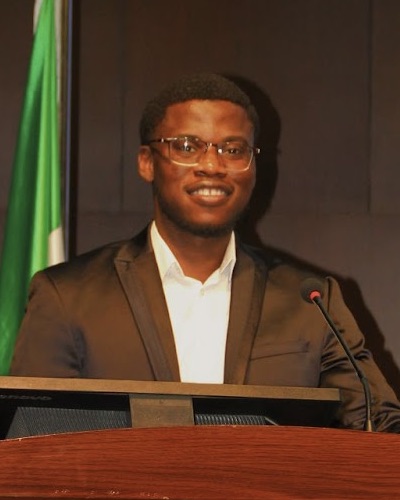 Chukwuma Mishael Chinomso is a Fullstack Software Developer, AI Engineer, and the founder of MizSpace Technology, a startup focused on building innovative solutions for language preservation, real estate, and robotics in Africa. Passionate about indigenous languages, he leads the development of AI-powered tools like the Igbo Chatbot, aimed at revitalizing and promoting the Igbo language. His work bridges technology and culture, with a mission to ensure a trustworthy and inclusive future for Indigenous communities.
Chukwuma Mishael Chinomso is a Fullstack Software Developer, AI Engineer, and the founder of MizSpace Technology, a startup focused on building innovative solutions for language preservation, real estate, and robotics in Africa. Passionate about indigenous languages, he leads the development of AI-powered tools like the Igbo Chatbot, aimed at revitalizing and promoting the Igbo language. His work bridges technology and culture, with a mission to ensure a trustworthy and inclusive future for Indigenous communities.
Ms. Fesaitu Solomone, CEO, The Centre for Pacific Languages (New Zealand)
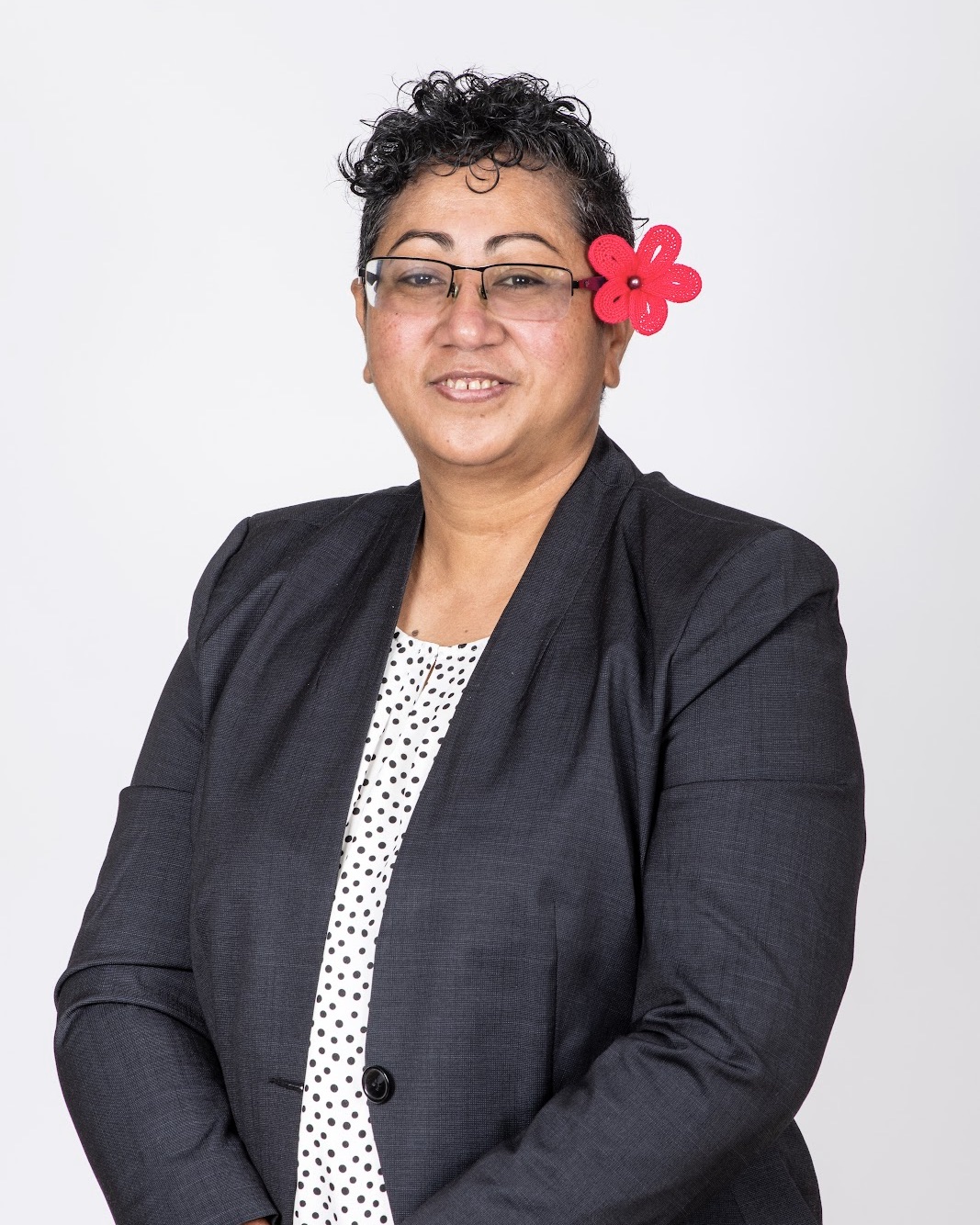 Fesaitu Solomone, a proud Rotuman and fluent Fӓeag Rotuḁm speaker, is dedicated to language preservation. As CEO of the Centre for Pacific Languages, she leads efforts to revitalise endangered languages, backed by her MBA and strategic expertise. With over 20 years in media and licensing, she has played key roles at Fiji TV and Sky TV, launched the first Rotuman bilingual poetry book, and contributed to COVID-19 messaging. She has chaired the Pacific Advisory Group at Auckland Museum and has shaped Pacific language policies. Through consultancy work, she advances cultural advocacy, media projects, and stakeholder engagement for Pasifika communities.
Fesaitu Solomone, a proud Rotuman and fluent Fӓeag Rotuḁm speaker, is dedicated to language preservation. As CEO of the Centre for Pacific Languages, she leads efforts to revitalise endangered languages, backed by her MBA and strategic expertise. With over 20 years in media and licensing, she has played key roles at Fiji TV and Sky TV, launched the first Rotuman bilingual poetry book, and contributed to COVID-19 messaging. She has chaired the Pacific Advisory Group at Auckland Museum and has shaped Pacific language policies. Through consultancy work, she advances cultural advocacy, media projects, and stakeholder engagement for Pasifika communities.
Dr. Ali Mehdi, Senior Director, Heritage Lab (Canada)
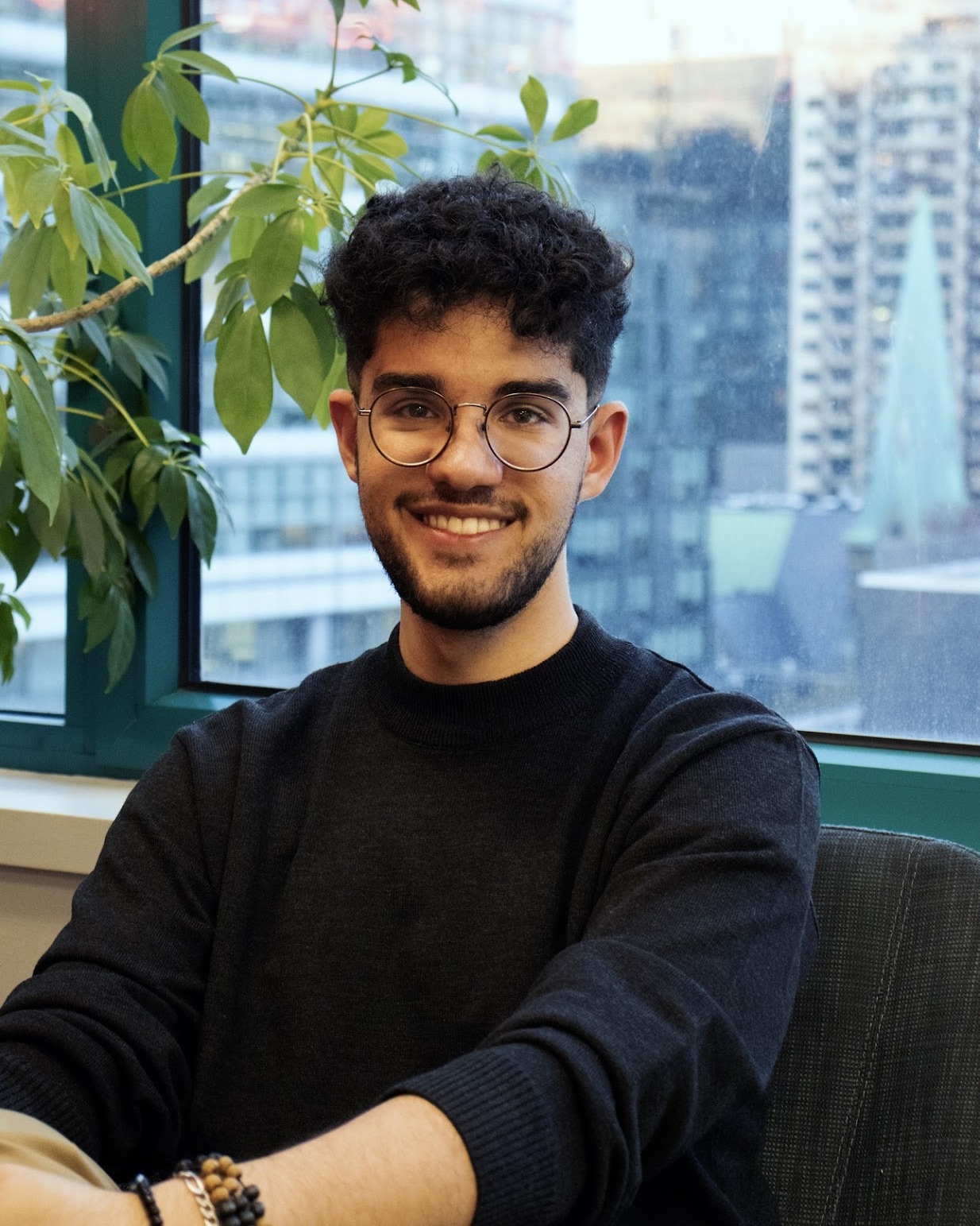 Ali Mehdi is the Senior Director of Heritage Lab, an Indigenous-led non-profit organization pioneering community-owned AI solutions for language preservation. With a background in AI and educational technology, Ali has worked extensively with Inuit communities in Nunavik, Quebec, developing culturally-responsive translation platforms that prioritize Indigenous data sovereignty. His work challenges the extraction-based approach of mainstream tech companies, creating locally-hosted AI models that preserve dialectal diversity rather than homogenizing Indigenous languages.
Ali Mehdi is the Senior Director of Heritage Lab, an Indigenous-led non-profit organization pioneering community-owned AI solutions for language preservation. With a background in AI and educational technology, Ali has worked extensively with Inuit communities in Nunavik, Quebec, developing culturally-responsive translation platforms that prioritize Indigenous data sovereignty. His work challenges the extraction-based approach of mainstream tech companies, creating locally-hosted AI models that preserve dialectal diversity rather than homogenizing Indigenous languages.
Dr. Natasha MacDonald, Vice President, Heritage Lab (Canada)
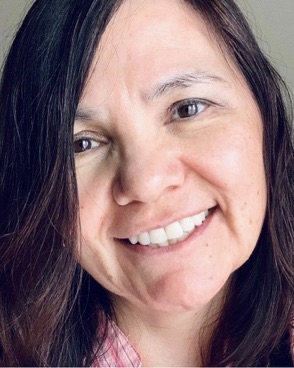 Natasha MacDonald, Vice-President, Heritage Lab, Natasha brings a unique combination of academic expertise and practical experience in Indigenous education and intercultural communication. As an Inuk from Kuujjuarapik, she provides essential cultural perspective and leadership.
Natasha MacDonald, Vice-President, Heritage Lab, Natasha brings a unique combination of academic expertise and practical experience in Indigenous education and intercultural communication. As an Inuk from Kuujjuarapik, she provides essential cultural perspective and leadership.
Dr. Ross Krekoski, MIL Lead, University nuxełhot’įne thaaɁehots’į nistameyimâkanak Blue Quills On Unceded Lands in Treaty Six Territory (Canada)
 Dr. Ross Krekoski currently coordinates the MA in Indigenous Language program here at UnBQ Ross teaches and researches in the Indigenous Languages Department at UnBQ. Some of his research interests are Indigenous Language Revitalization, phonology, and Conversation/Discourse.
Dr. Ross Krekoski currently coordinates the MA in Indigenous Language program here at UnBQ Ross teaches and researches in the Indigenous Languages Department at UnBQ. Some of his research interests are Indigenous Language Revitalization, phonology, and Conversation/Discourse.
Ms. Tina Wellman, Instructor, University nuxełhot’įne thaaɁehots’į nistameyimâkanak Blue Quills On Unceded Lands in Treaty Six Territory (Canada)
 Tina is a Woodland/Northern Plains Cree speaker, sakâw nêhiyaw iskwêw from Big Stone Cree Nation. She holds an MA in Indigenous Languages and has been accepted in the iyiniw pimâtisiwin kiskeyihtamowin Doctoral Program at University nuhelot’įne thaiyots’į nistameyimâkanak Blue Quills. She currently heads the Language Resource Department at University nuxełhot’įne thaaɁehots’į nistameyimâkanak Blue Quills (UnBQ), which develops resources for both Denesųłinẻ and nêhiyawêwin. In addition to resource building, Tina’s role at UnBQ also involves course instruction, language support for students, facilitating language and healing workshops, and fundraising activities, with experience in curriculum development.
Tina is a Woodland/Northern Plains Cree speaker, sakâw nêhiyaw iskwêw from Big Stone Cree Nation. She holds an MA in Indigenous Languages and has been accepted in the iyiniw pimâtisiwin kiskeyihtamowin Doctoral Program at University nuhelot’įne thaiyots’į nistameyimâkanak Blue Quills. She currently heads the Language Resource Department at University nuxełhot’įne thaaɁehots’į nistameyimâkanak Blue Quills (UnBQ), which develops resources for both Denesųłinẻ and nêhiyawêwin. In addition to resource building, Tina’s role at UnBQ also involves course instruction, language support for students, facilitating language and healing workshops, and fundraising activities, with experience in curriculum development.
Dr. Jean Maillard, Researcher, Meta Fundamental AI Research Lab (USA)
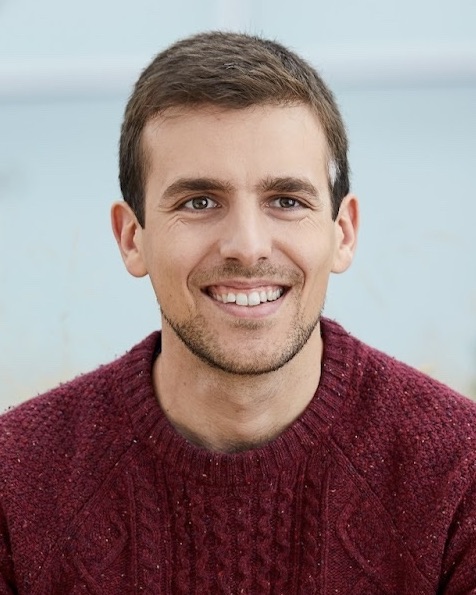 Jean Maillard is a researcher at Meta’s Fundamental AI Research lab. His research is focussed on language technologies for under-served and endangered languages.
Jean Maillard is a researcher at Meta’s Fundamental AI Research lab. His research is focussed on language technologies for under-served and endangered languages.
Mr. André Palaguine, CEO, NATIONS Translation Group (Canada)
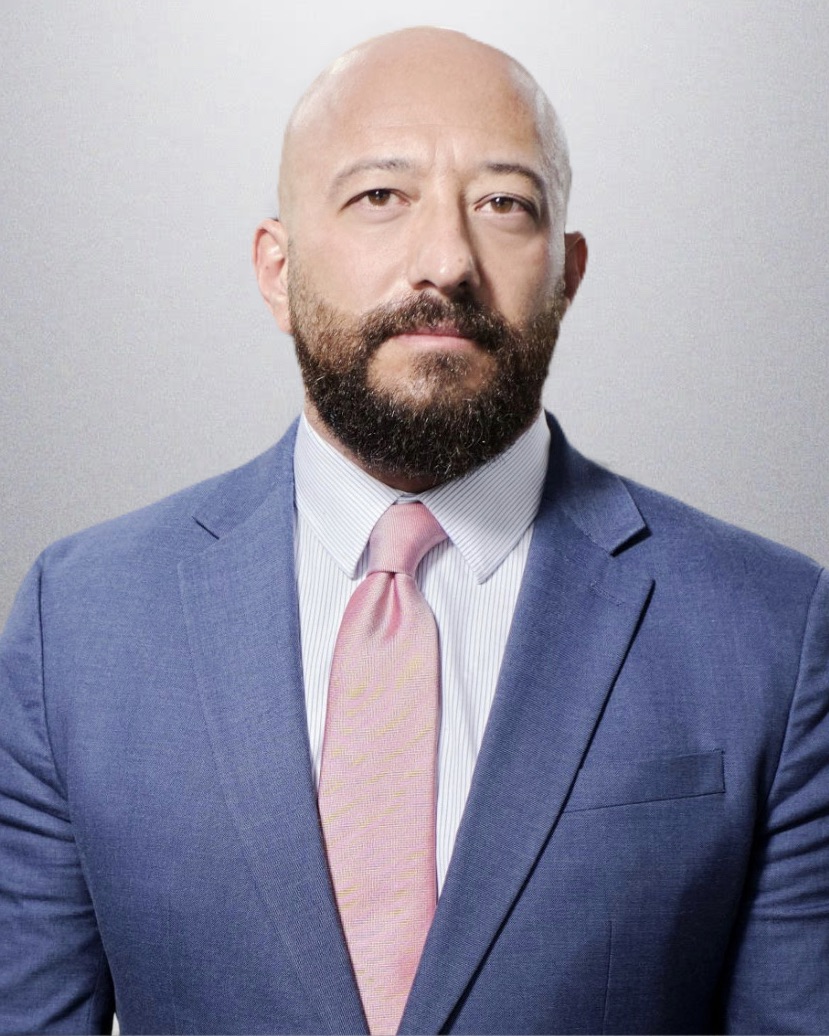 André is a veteran CEO with 25+ years of experience driving growth and innovation in multimillion-dollar companies. Known for his strategic vision, dynamic leadership, and integrity, he consistently delivers results and inspires teams.
As CEO of NATIONS Translation Group and Language Marketplace, he leads bold expansion and tech-driven innovation to enhance client service.
André serves on the CLIA Board (Chair since 2017) and joined the Canadian General Standards Board’s technical committee in 2022, shaping national standards.
André is a veteran CEO with 25+ years of experience driving growth and innovation in multimillion-dollar companies. Known for his strategic vision, dynamic leadership, and integrity, he consistently delivers results and inspires teams.
As CEO of NATIONS Translation Group and Language Marketplace, he leads bold expansion and tech-driven innovation to enhance client service.
André serves on the CLIA Board (Chair since 2017) and joined the Canadian General Standards Board’s technical committee in 2022, shaping national standards.
Dr. Faruk Mardan, Lecturer in Translation and Interpreting, University of Leeds (UK)
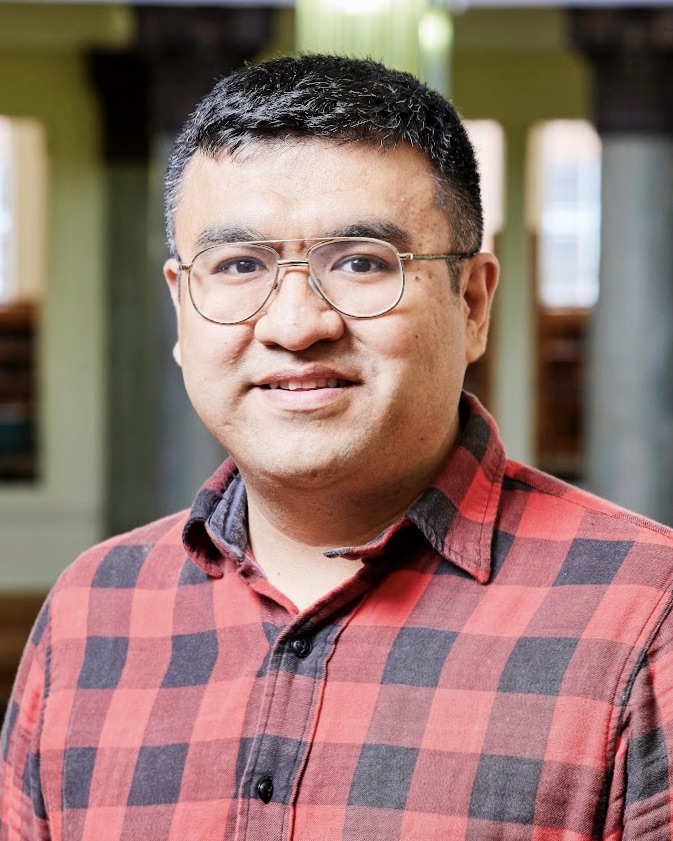 Faruk Mardan is a lecturer in Translation Technology at the University of Leeds, as well as a freelance translator and interpreter, with English, Chinese and Uyghur as his working languages. He is also pursuing a PhD in machine translation for under-resourced languages.
Faruk Mardan is a lecturer in Translation Technology at the University of Leeds, as well as a freelance translator and interpreter, with English, Chinese and Uyghur as his working languages. He is also pursuing a PhD in machine translation for under-resourced languages.
Mr. Tex Texin, Globalization Architect, Board of Advisors, Translation Commons (USA)
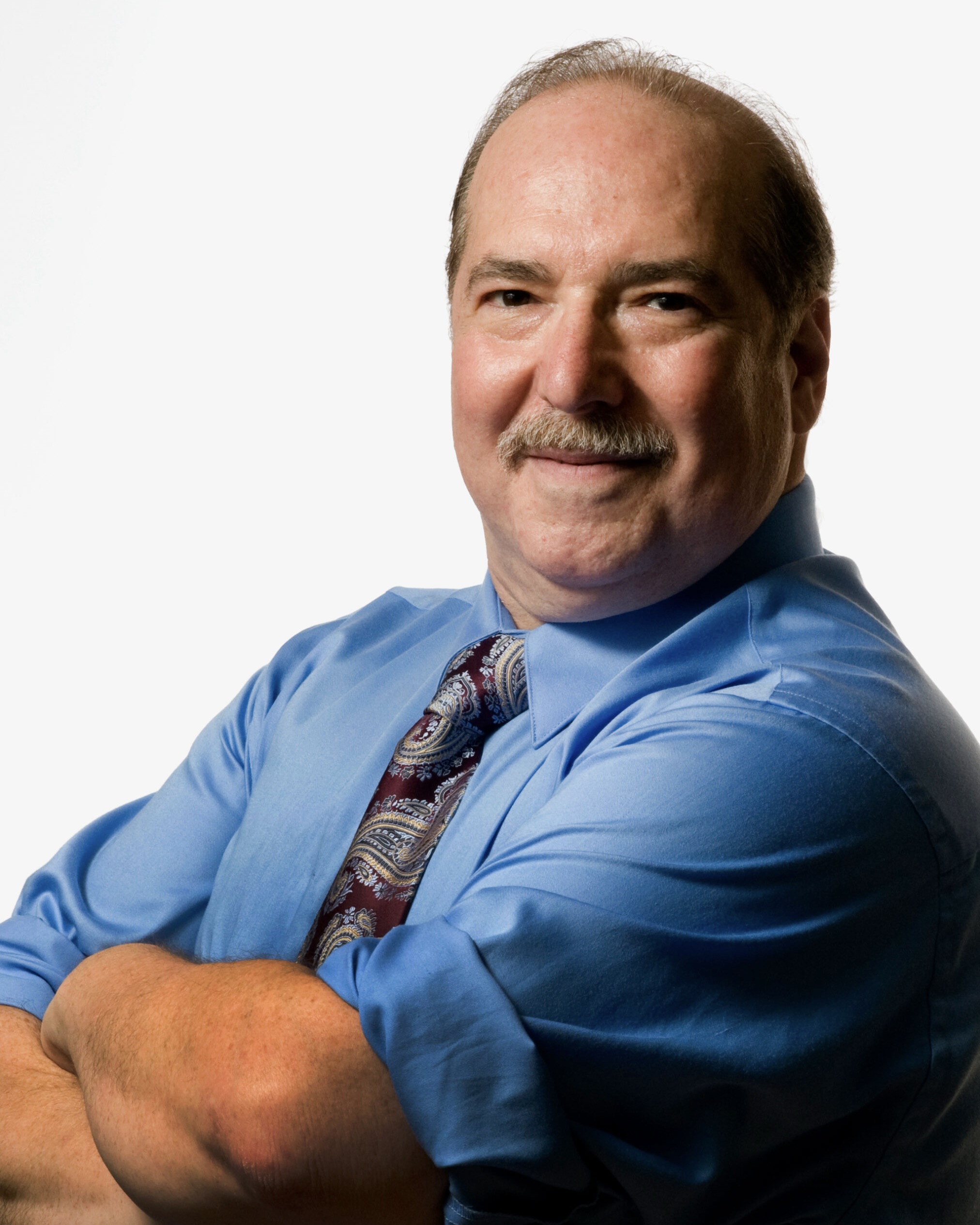 Mr. Tex Texin is an industry thought leader specializing in software globalization services. Mr. Texin has contributed to several internationalization standards and open source software and has been an advisor to several globalization non-profits. He is an advisor to Translation Commons where he has been architecting their Language Digitization Initiative, bringing the languages of indigenous communities to digital systems. Mr. Tex Texin, and his consulting company XenCraft, help numerous companies create global products and guide companies in taking business to new regional markets. Mr. Texin is a popular speaker at conferences around the world. He is the owner/author of the popular, instructional I18nGuy.com site.
Mr. Tex Texin is an industry thought leader specializing in software globalization services. Mr. Texin has contributed to several internationalization standards and open source software and has been an advisor to several globalization non-profits. He is an advisor to Translation Commons where he has been architecting their Language Digitization Initiative, bringing the languages of indigenous communities to digital systems. Mr. Tex Texin, and his consulting company XenCraft, help numerous companies create global products and guide companies in taking business to new regional markets. Mr. Texin is a popular speaker at conferences around the world. He is the owner/author of the popular, instructional I18nGuy.com site.
